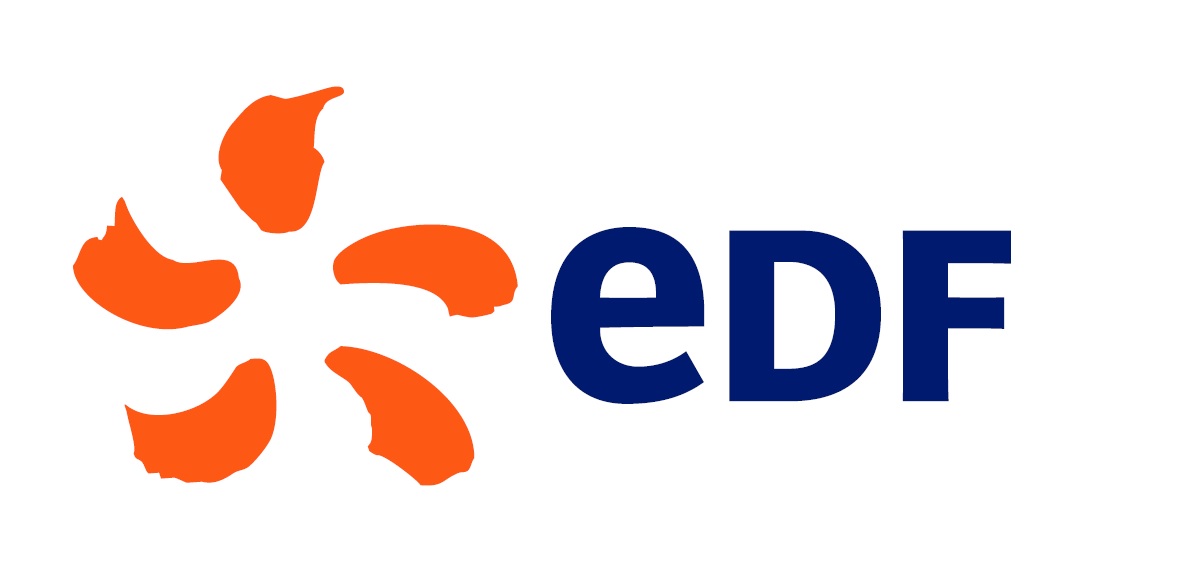The EDF Group (EDF) is one of the world leading electricity company. Present in 22 countries, it is particularly well established in Europe, where it supplies 35.1 million customers. In 2017, EDF produced 618 TWh of electricity with a turnover of 71.2 G€. Its business covers, through its different affiliate companies, all electricity-based activities from generation to retail and include energy transmission and distribution, trading and services activities. In particular, EDF SA is a provider of flexibility services to the electricity system through its portfolio of generation assets, storage facilities and aggregation of decentralized resources, such as demand response of its customer base. EDF plans to double the Group’s net installed power in the field of renewable energies, thus increasing from 28 GW today to over 50 GW (before 2030). This will be achieved through the deployment of already announced solar, storage and e-mobility plans.
Concerning storage, EDF is already involved in the main storage technology applications, including batteries and Pumped-Storage Hydroelectricity. In March 2018 EDF announced its willingness to become the European leader in this field by 2035. EDF’s goal is to develop 10GW of additional storage around the world by 2035, on top of the 5GW already operated by the Group. This acceleration represents an investment of €8 billion during the 2018-2035 period. Faced with the rapid development of storage technology, EDF is also increasing its R&D capabilities in this field. Investment in research into storage for the power system will double, reaching €70 million for the 2018-2020 period. In fact, EDF builds on the expertise of its people, its R&D and engineering skills, its 70 years long experience as a leading industry operator and the attentive support of its customers to deliver competitive solutions that successfully reconcile economic growth with energy transition.
EDF SA’s integrated Research and Development Division (involved in the project) employs 2 200 people (1/3 women) mainly located in the European Union. Regarding the integration of high share of renewables and the development of smart grids, EDF R&D aims at identifying both technological and market design solutions to meet the evolving electricity system needs. The mission of the EDF R&D LME (Electrical Equipment Laboratory) department involved within the project is to support EDF group regarding electrical equipment installed on the electrical network but also to predict and plan the future electrical system design. EDF R&D has thus a deep and recognized experience in battery technological research, power electronic and conversion modelling/testing, battery ageing modelling/testing and supplier evaluation. In fact, EDF owns large battery ageing testing facilities and already owns testing facilities able to perform high dynamic charge/discharge cycles (15kHz, 80A) to accommodate large cells meant for stationary storage. EDF R&D has also skills in battery storage system testing in actual conditions (Concept Grid Platform) and online monitoring of energy storage assets.
LME Department of EDF R&D is on the front line in fulfilling the ambition of the Storage Plan. It has a world-class storage laboratory with a large spectrum of hardware and software equipment to conduct battery tests through battery life cycle (including 2nd life tests), testing electrolysers technologies supplied with carbon-free electricity (renewables and nuclear), and contributing to the industrialization of hybrid systems based on Zn-Air batteries. The key mission of LME department is to help EDF gain competitive advantage through lowering batteries cost and introducing digital technologies in storage. To this end, LME provides EDF with an up-to-date vision of the different battery technologies and their cost structure, advises EDF on storage investment, evaluates batteries and demonstrators, analyzes the characteristics of 1st and 2nd life batteries using its lab equipment, provides hydrogene technology expertise and testing capacities, develops innovation to increase battery performance and lifespan, uses internal benchmark to evaluate different storage system performance, provides expertise on batteries resources and materials, life cycle analysis, end of life and recycling, develops hybrid storage solutions. LME also helps EDF business units identify business opportunities for large system storage, “microgrids,” individual and collective self-consumption and brings R&D expertise to EDF Group’s stationary storage projects along the value chain.
Role in the project
EDF is leader of Result 5: Technology Integration, demonstration and evaluation. EDF will integrate the HESS into its testing platform concept grid. Through complex and innovative use cases involving Fast EV charger and a cutting edge AGRI PV farm, the prototype will be tested in various configuration making sure that both software and hardware are responding accordingly to the specification made in Result 1.
Website: https://www.edf.fr/NetworksLab
Country: France

